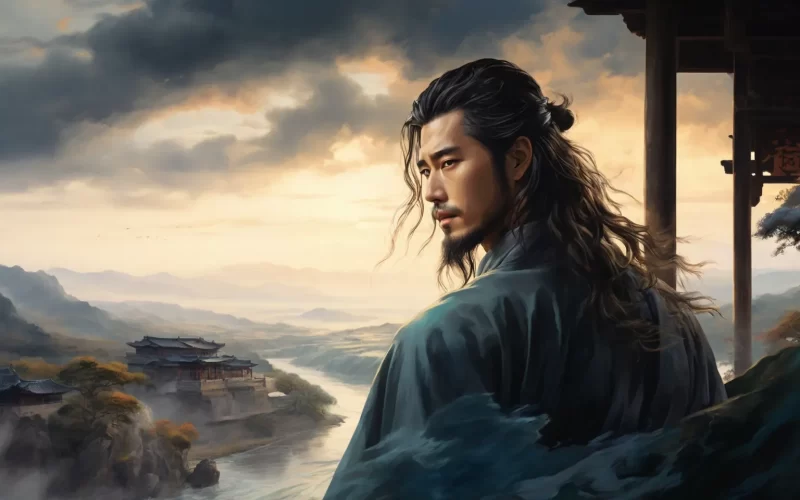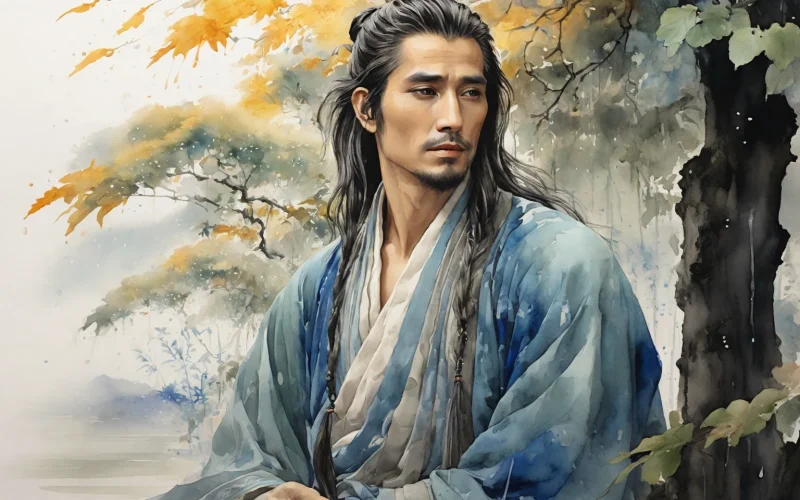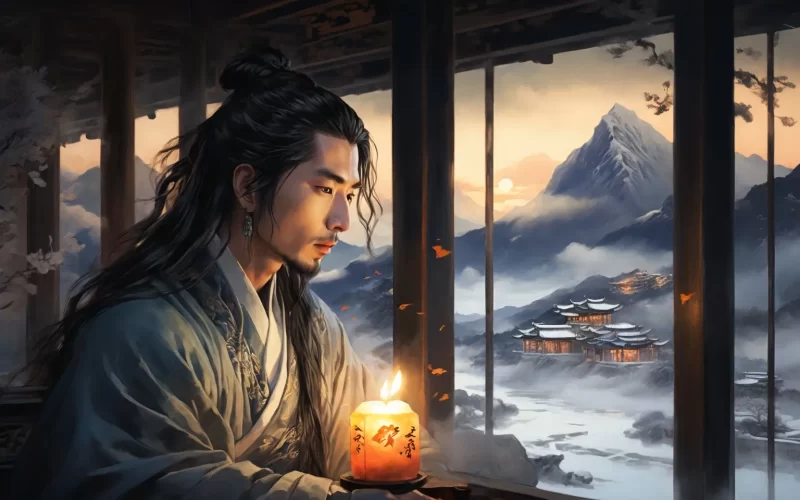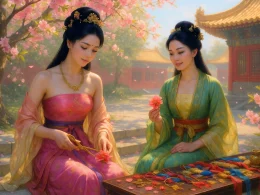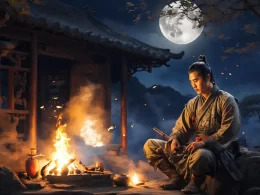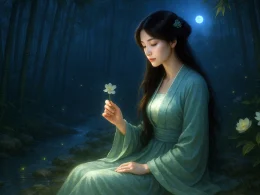「九日登望仙台呈刘明府」
汉文皇帝有高台, 此日登临曙色开。
三晋云山皆北向, 二陵风雨自东来。
关门令尹谁能识? 河上仙翁去不回,
且欲竟寻彭泽宰, 陶然共醉菊花杯。
赏析:
This poem was composed by Tang Dynasty poet Cui Shu during the Chongyang Festival (Double Ninth). Ascending the legendary Immortal-Viewing Terrace (said to be built by Emperor Wen of Han), the poet reflects on historical figures and his own unrecognized talents, while subtly critiquing contemporary politics through historical allusions. The elevated terrace, traditionally a site for literati contemplation, serves as the perfect vantage point for this landscape poem that doubles as a gift for Liu Mingfu—a work transcending conventional social verse through its majestic imagery and profound sentiments.
First Couplet: « 汉文皇帝有高台,此日登临曙色开。 »
Hàn wén huángdì yǒu gāo tái, cǐ rì dēng lín shǔ sè kāi.
Emperor Wen of Han once built this lofty terrace; This dawn I climb it as daybreak floods the skies.
The opening establishes imperial legacy and temporal context—the Chongyang Festival's predawn ascent. The "flooding daybreak" symbolizes both literal light and the poet's expansive vision.
Second Couplet: « 三晋云山皆北向,二陵风雨自东来。 »
Sān jìn yún shān jiē běi xiàng, èr líng fēngyǔ zì dōng lái.
Three Jin's cloud-capped peaks all northward lean; Twin imperial tombs meet windswept rains from east.
Topographical grandeur merges with historical consciousness. The alignment of mountains and weather patterns becomes metaphor for dynastic cycles—nature's permanence contrasting with human transience.
Third Couplet: « 关门令尹谁能识?河上仙翁去不回。 »
Guān mén lìng yǐn shéi néng shí? Hé shàng xiān wēng qù bù huí.
Who remembers the pass-keeping magistrates now? The riverside immortal left never to return.
Allusions to forgotten officials and the legendary Jiang Ziya (who fished at Wei River) underscore the vanity of political striving versus Daoist transcendence.
Fourth Couplet: « 且欲竟寻彭泽宰,陶然共醉菊花杯。 »
Qiě yù jìng xún Péngzé zǎi, táo rán gòng zuì jú huā bēi.
Let me instead seek Magistrate of Pengze, To share drunken bliss in chrysanthemum wine.
The resolution evokes Tao Yuanming (the "Magistrate of Pengze"), whose chrysanthemum wine symbolizes recluse ideals. The poet's retreat into nature and wine mirrors the festival's traditional libations.
Holistic Appreciation
The poem opens with a majestic vista from the terrace—vast mountains and rivers bathed in morning light, evoking boundless grandeur. It then transitions into profound historical reflection, spanning from Emperor Wen of Han and the imperial terrace to local officials and Jiang Taigong, weaving a sweeping meditation on dynastic rise and fall. Finally, it turns inward, expressing the poet’s own yearning for reclusion. This structure—moving from the concrete to the abstract, from antiquity to the present, and from external figures to personal aspiration—creates a natural, well-paced progression. The poem blends lofty scenery, melancholic sentiment, and transcendent idealism, embodying the Tang Dynasty’s fusion of landscape poetry with lyrical depth.
Artistic Merits
The poem demonstrates masterful composition and stylistic maturity. Its structure is meticulously crafted, beginning with the ascent and the vista, shifting into historical contemplation, and culminating in personal revelation—each transition seamless and thematically coherent. The poet excels in merging scene and emotion, using natural imagery like "cloud-capped mountains" and "windswept rain" to symbolize the passage of time and political flux, blending the tangible with the abstract to create a grand, evocative atmosphere.
Historical allusions—Emperor Wen, Jiang Taigong, and Tao Yuanming—are woven organically into the verse, expanding its temporal and spatial dimensions while adding profound historical resonance and personal idealism. The language flows effortlessly, adhering to tonal patterns yet allowing rhythmic flexibility in the parallel couplets, reflecting the Tang poets’ pursuit of spiritual resonance over rigid formalism. This emphasis on artistic conception and emotional depth, rather than strict adherence to form, imbues the poem with enduring vitality and expressive power.
Insights
The poem’s meditation on historical transience and life’s choices invites deep reflection: wealth and glory fade like passing clouds, and rather than chasing an uncertain political career, one might instead return to authenticity, seeking spiritual freedom and clarity. As the poet suggests, why not "drink cheerfully from chrysanthemum cups," embracing nature and aligning with the ancients’ wisdom? This ethos of "knowing when to advance and retreat, recognizing honor and disgrace" epitomizes the Confucian scholar’s ideal of reclusive integrity, offering timeless guidance on living with detachment and wisdom in an ever-changing world.
About the poet
Cui Shu(崔曙), 704-739 A.D., a native of Dengfeng, Henan Province, was admitted as a jinshi in 738 A.D., but was only a minor official. He lived in the Songshan Mountains in Henan Province, and was fond of socializing, and was friendly with Xue Zhi and others. He was a poet, and was known for his poems that were very elegant in words and sad in mood, and that he could shed tears when sending off a friend and ascending a building.






